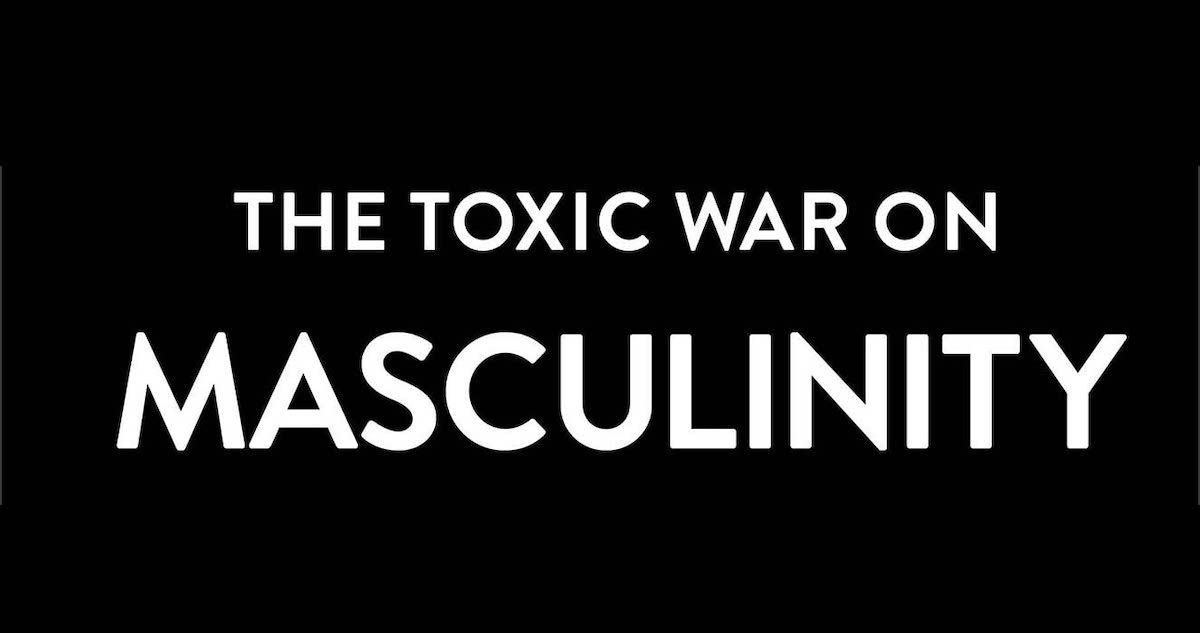If there is any word used to describe masculinity in our day, any adjective commonly used to modify it, it is almost invariably “toxic.” We hear almost nothing of positive masculinity or healthy masculinity. But we hear endlessly of its toxicity. It would not be wrong to conclude that society really has no vision for a masculinity that is noble and good (unless it is essentially indistinguishable from femininity). It would not be wrong to conclude that society considers masculinity one of the great problems that human progress must overcome.
Nancy Pearcey has many thoughts on this subject and her response is the cleverly titled The Toxic War on Masculinity. For her great concern is not the toxicity of masculinity itself, but the toxicity of the war against it.
It’s not like Pearcey is writing from some Utopia in which she has only ever seen positive examples of masculinity in action. To the contrary, she grew up in a home with a father who was cruel to his family. She was subjected to an extremely harmful form of masculinity that was abusive toward her and her siblings. It was largely because of the contrast between her dad in public (moral, upright, religious) and her dad in private (cruel, unjust, violent) that she abandoned her religious upbringing when she was a teen, turning instead of the writings of the feminist movement. It was only when she stumbled upon L’Abri and the ministry of Francis Schaeffer that she recommitted to the Christian faith and began the long process of healing.
Through Christian eyes, she was able to see the issues with the feminism that had once been attractive to her. And with those same Christian eyes she was able to see that abuse exists within the church and is sometimes even tolerated by it. But now she could look to Scripture to see that the problem is not with masculinity itself, but with its distorted forms. What God has created is good and must be celebrated. But it must also be fostered and protected, not allowed to be twisted and perverted.
Her book is an attempt to understand the God-given pattern for men and to define a truly healthy masculinity. But it goes beyond that to consider how Western culture lost its vision for a healthy masculinity and to propose how it can be recovered. Taking a “show, don’t tell” approach, she blends history and sociology with personal stories and outside examples. It makes for a powerful and compelling package.
In the book’s first part, she dispels some false assumptions to show that while most people believe that conservative Christian men are patriarchal and domineering, studies continue to disprove this. To the contrary, Christian men who are truly committed to their faith (in contrast to those who attend church merely out of tradition or for the sake of appearances) have very low rates of divorce and domestic violence. She takes this as proof that the Christian message has power to help men thrive as husbands and fathers.
In the second part, which constitutes the bulk of the book’s content, she examines notions of masculinity and how they have changed over time. She travels through major periods of history to show how society changed the ways men function in the world, workplace, church, and home. She explains how a biblical understanding of masculinity was slowly but surely replaced by a secular one.
In part three, she shows that many people who claim to be Christians, but who are only nominally so, exhibit some of the worst and most toxic behaviors of all. These nominal people skew the statistics to make people think Christianity itself produces a toxic form of masculinity when, in reality, that tends to be men who embrace terms like headship and submission, but who understand them through a secular lens of power and control. Then, at the end of it all, she suggests some ways forward—some solutions to the crisis of masculinity within the church.
It makes for a compelling book and one that serves its purpose. Well-researched and exhaustively documented, well-written and endorsed by a diverse collection of authors, I expect that it will be widely-read and that it will help spark many good conversations within the Christian world. Best of all, I hope it will help provide a positive, hopeful, biblical vision for masculinity.
Publishers are sometimes known to change the release dates for their books. I read The Toxic War on Masculinity with the understanding that it was to be released at the end of April. It wasn’t until I had read it and begun to write a review that I saw its release date had been changed to June. That means that the manuscript is still prone to change, and hence I have not quoted from it or interacted with it too deeply. So for the time being, I will leave you with this overview and hope that it interests you. And that perhaps it will convince you to pre-order the book so you can read it for yourself.










